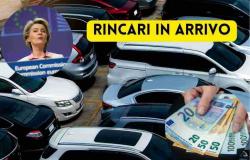In the context of growing geopolitical tensions and the need to strengthen energy security, the European Commission is committed to developing a crucial measure for European Union member countries: a roadmap to end supplies of Russian gas. In a context of growing global instability, this initiative aims not only to reduce Europe’s dependence on unreliable and politically charged energy sources, but also to ensure a more sustainable and secure energy future.
The decision is followed by an informal meeting, held in the form of a working lunch between the ambassadors of the EU countries. The meeting, initiated under the impetus of Germany and the Czech Republic during the last meeting of the Energy Council, marked the birth of a high-level group tasked with directly addressing this challenge.
During the meeting, the diplomats found a solid common basis while highlighting the need to continue the debate to define the organizational and operational structure of this new initiative. It was agreed that the group should have a more political than institutional character, highlighting the pre-eminence of strategic and energy sovereignty issues over mere bureaucracy. Ditte Juul-Jorgensen, director general of the European Commission’s Directorate General for Energy, has accepted the task of developing this roadmap which will mark the path to achieving independence from Russian gas.
Currently, Europe still imports around 14 billion cubic meters of Russian gas a year through Ukraine, via a canal that has become the only land corridor following the sabotage of the Nord Stream gas pipeline. With the trilateral agreement between Brussels, Moscow and Kiev due to expire imminently at the end of the year, the urgency to develop alternatives becomes even more pressing. The EU working group aims to anticipate events, analyzing possible actions to definitively eliminate energy dependence on Moscow.
This strategy is not only a response to the immediate needs of energy security, but is part of the broader European policy of transition towards green energy. From this perspective, reducing the import of Russian natural gas would not only decrease Europe’s political and economic vulnerability, but would also push towards greater investment in renewable technologies and sustainable energy solutions.
With global tensions on the rise and the threat of climate change increasingly pressing, the European Commission’s step shows necessary foresight. The roadmap will not only define the timing and methods of the divestment of Russian gas, but will also establish the basis for strengthened collaboration between member states, which is fundamental for addressing the energy challenges of the future.
We therefore look forward to seeing the details of this initiative and how it will develop in the months to come, in the hope that it will lead to greater energy autonomy and a cleaner environment for Europe’s future generations.





